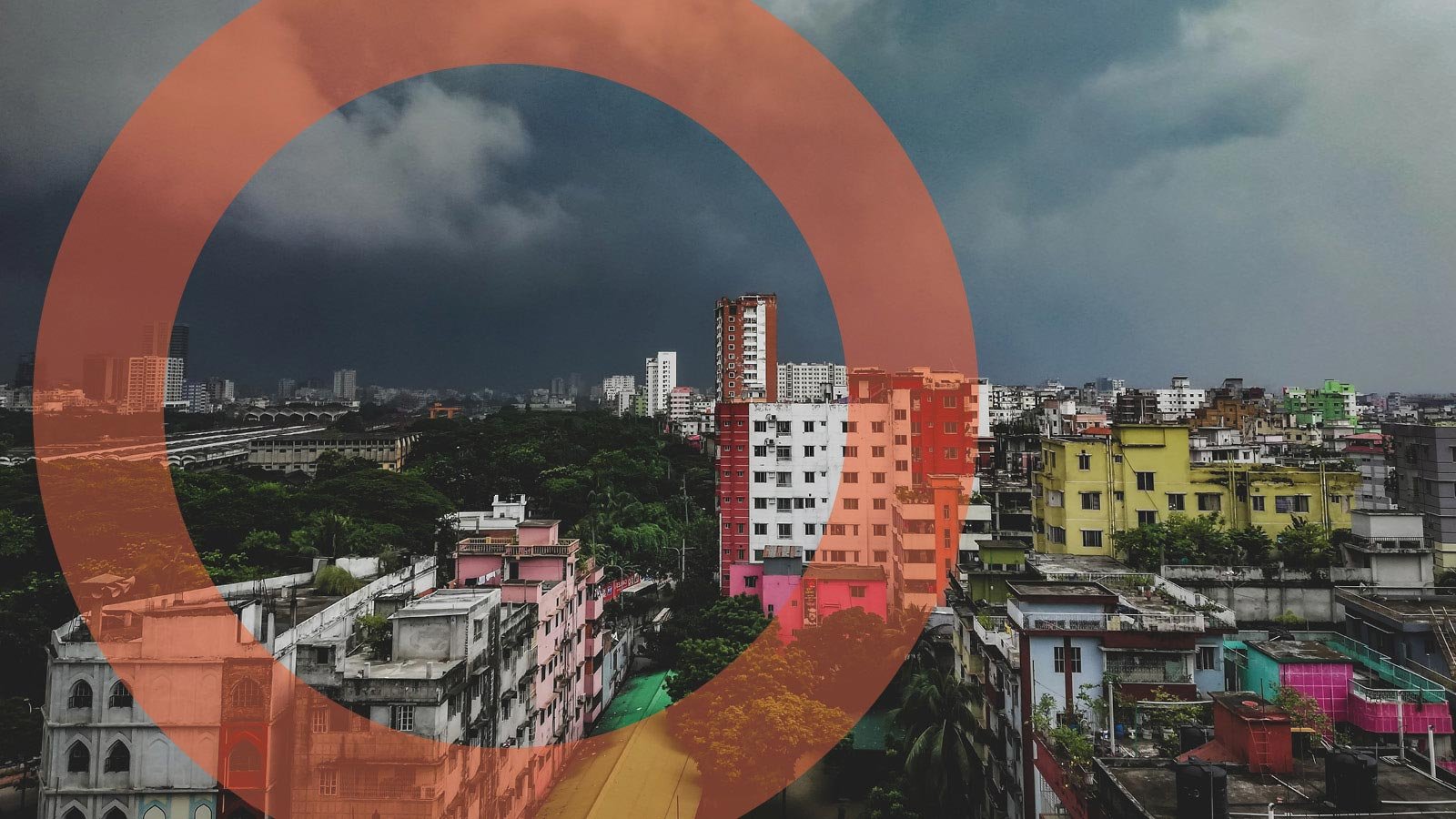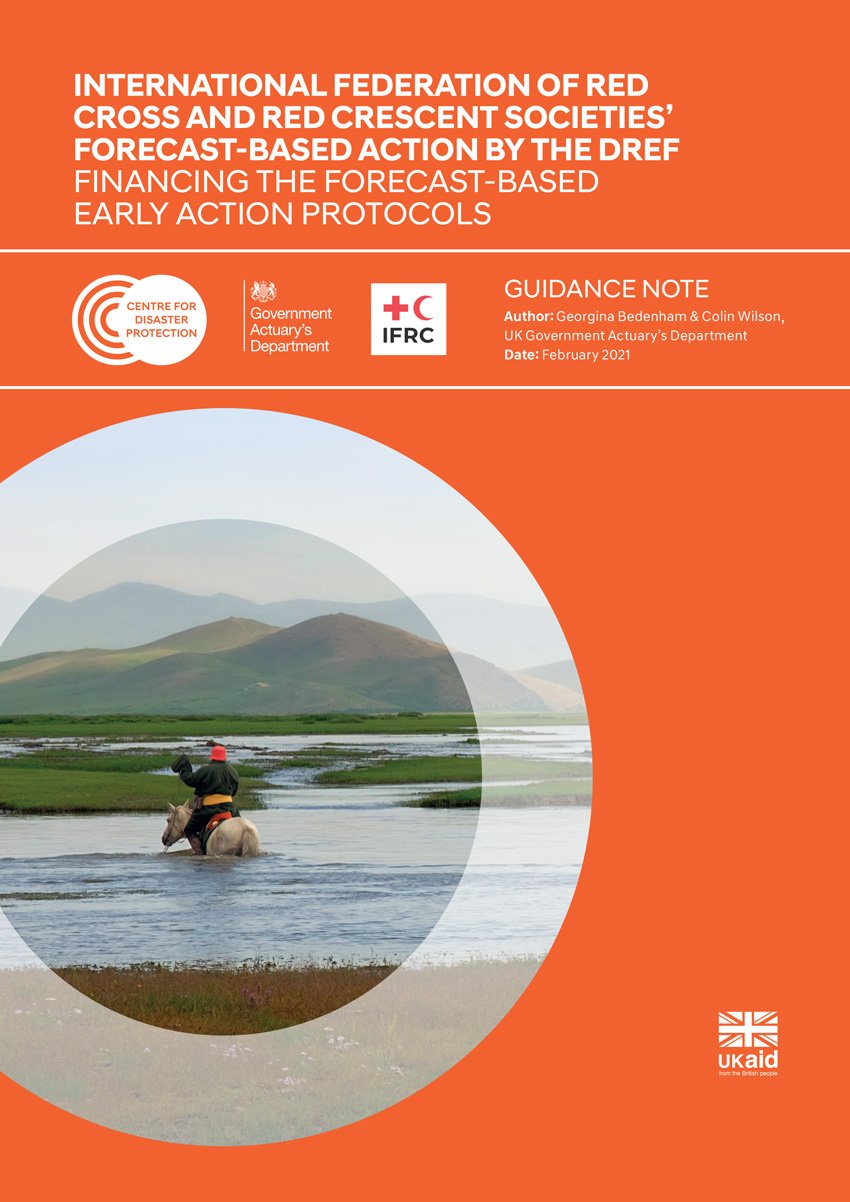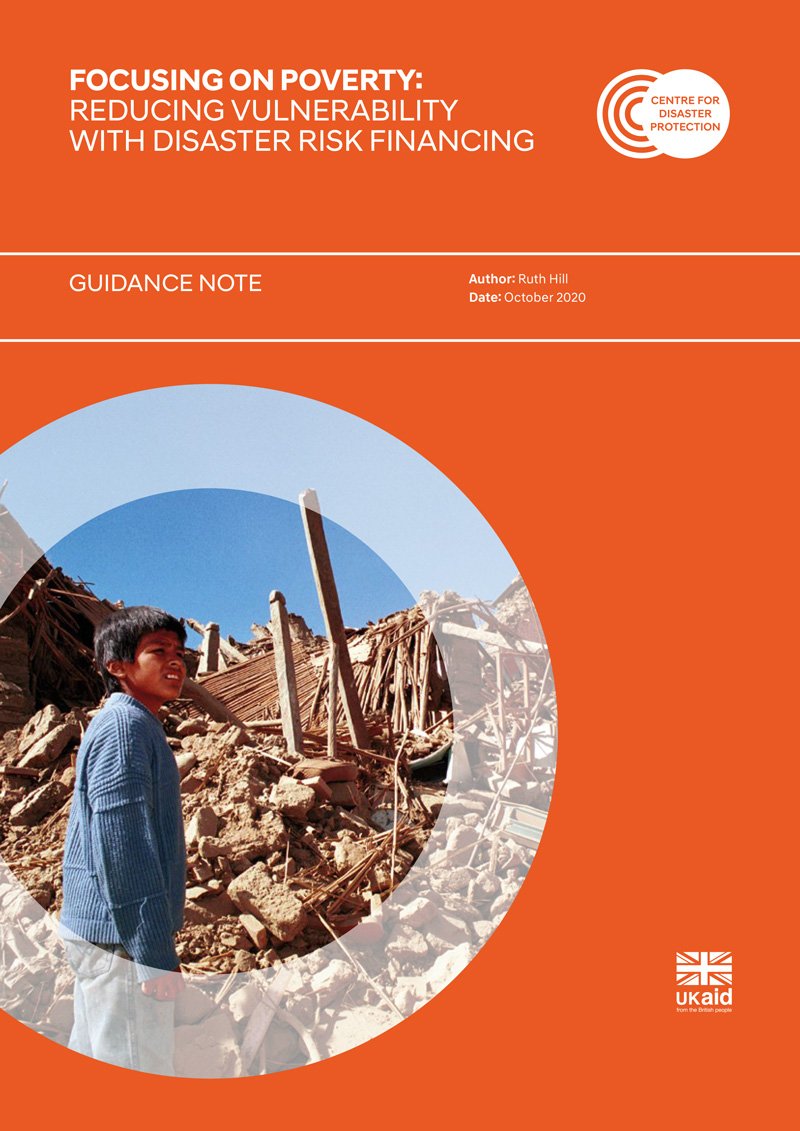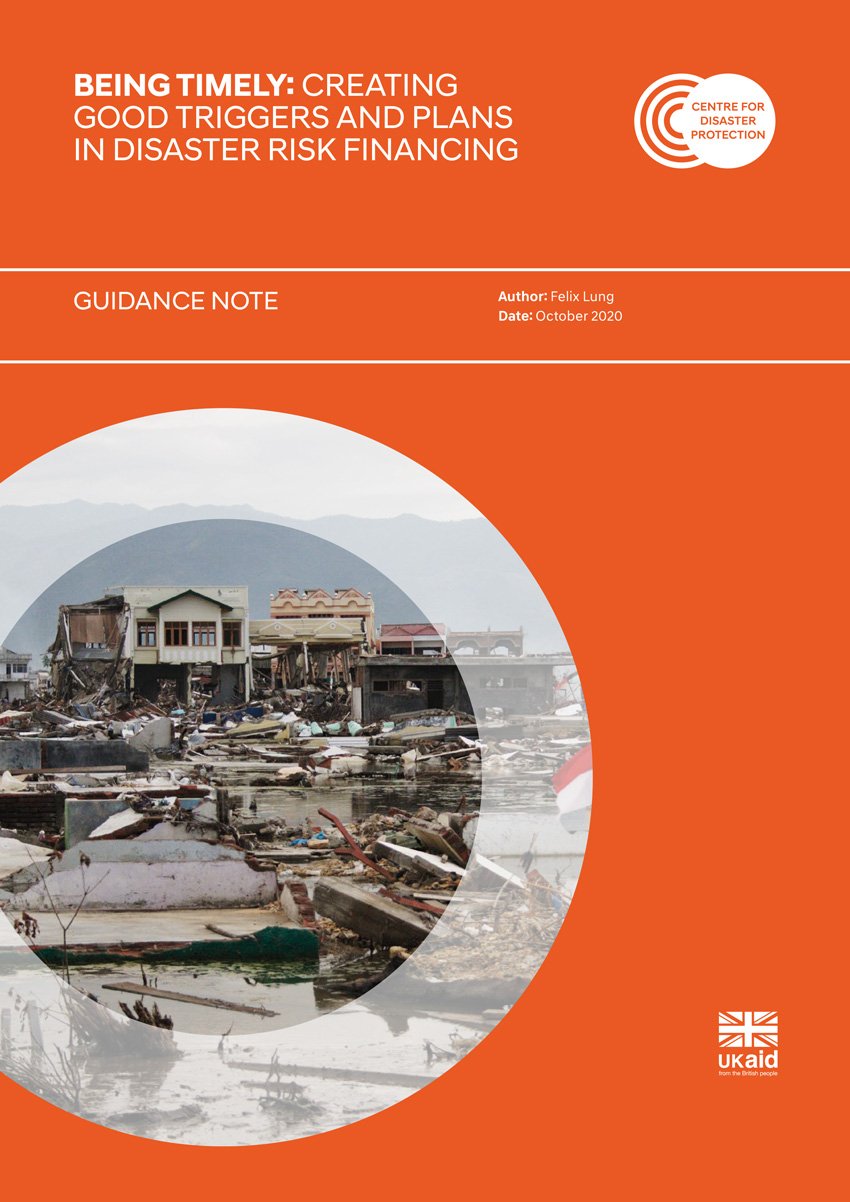
PUBLICATIONS CENTRE

ACCOUNTABILITY IN DISASTER RISK FINANCING
As disaster risk financing (DRF) matures, it needs to better understand and implement accountability—particularly towards the at-risk people it seeks to benefit. There is growing awareness of this, but application remains nascent. This working paper presents a framework for understanding accountability in this context, as well as an overview of implementation in order to stimulate and inform progress.

INTERNATIONAL FEDERATION OF RED CROSS AND RED CRESCENT SOCIETIES’ FORECAST-BASED ACTION BY THE DREF
It is well known that in the event of a disaster, the speed of response is key. It is increasingly recognised that precommitment, readiness preparations, and forecast-based action can dramatically improve effectiveness. This report examines the alternative options that may be available to the International Federation of Red Cross and Red Crescent Societies (IFRC) when funding its Early Action Protocols (EAPs) through the Forecast-based Action by the DREF (FbA by the DREF)

COVID-19 AND INEQUALITY: A REVIEW OF THE EVIDENCE ON LIKELY IMPACT AND POLICY OPTIONS
This discussion paper examines the unequal impacts of the pandemic across different groups, the potential consequences for long-term inequality, and the implications of both of these for policy. Although realtime data on the impact of covid-19 in developing countries is currently scarce, early data from surveys during the crisis period, together with available evidence from past shocks, form a useful basis for the discussion.

FOCUSING ON POVERTY: REDUCING VULNERABILITY WITH DISASTER RISK FINANCING
Disasters have the biggest impact on those that are least able to protect themselves from them: vulnerable people. In most cases the most vulnerable are also the poorest in a society. This guidance note sets out some questions that can be asked during programme design to help ensure that DRF is most directed to those who are least able to withstand shocks.

BEING TIMELY: CREATING GOOD TRIGGERS AND PLANS IN DISASTER RISK FINANCING
This guidance note offers practical guidance on contingency planning and triggers for preparing before a disaster strikes to support a faster, more coordinated, and ultimately, more effective response.

IMPROVING CONSTANTLY: EMBEDDING SCRUTINY AND LEARNING IN DISASTER RISK FINANCING
There is currently little in the way of rigorous evidence of impact or established ‘best practice’ in DRF. It is important, therefore, that we engage in scrutiny, be open to learning and willing to be held accountable. This guidance note sets out practical ways to ensure quality, independent scrutiny and improved learning in your DRF initiatives.

CREATING POWER FOR PEOPLE FACING RISK: THE ROLE OF PARTICIPATION IN DISASTER RISK FINANCING
Ensuring the inclusive participation of people in DRF is essential but challenging. It builds trust and empowers the public to demand greater accountability of governments and reward them for reliable disaster support. This guidance note gives practical advice on consulting and involving communities in decision-making that impacts their lives.
